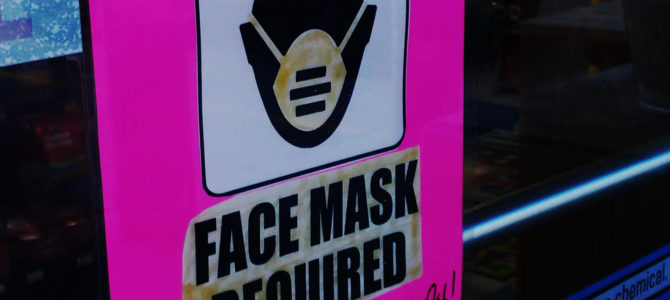
Conservative and libertarian candidates: Want to make the crowd yawn? State emphatically that you want to reduce regulations, but don’t give any examples. Nobody knows what that means, so eyes will glaze over even as heads nod. That’s the best you can hope for. At worst, your vague assertion will give your liberal opponent a great talking point: “See, my opponent wants to eliminate all government regulations, poison the food, air, and water, and unleash anarchy upon the earth!”
Drop the regulation line from your stump speech, or up your game. You need to name the regulations and, more importantly, name the names. Arbitrary regulations deprive real people of their freedom, property, and self-determination. Needless nannyism isn’t just an annoyance; it’s an insidious threat to liberty.
To Follow My Own Advice
Recent examples abound at every level of government. Let’s start with local government. Denver health department officials just cited the Prost Brewing Company for allowing customers to bring their dogs into the brewery. Regulators said the brewery violated the law forbidding dogs in establishments that serve food. Prost doesn’t serve food.
For years, Prost has allowed dogs inside, because the brewery only sells beer. The brewer doesn’t even have a license to make or serve food, only a manufacturing license to make beer. Because it’s not a restaurant, nobody has complained. Presumably people who don’t like beer or don’t like dogs—or who don’t like dogs and beer together—go elsewhere, perhaps to a restaurant.
Not so fast, contend the regulators; they consider beer to be food. The only reason Prost and other such breweries have not been cited previously is that the department has been short-staffed. Now there are enough agents to ensure that breweries remain safely canine-free. In essence, the city has told citizens they cannot engage in a harmless activity, and have classified a beverage as a food in order to justify their intervention.
Sadly, this is not a one-off story. It’s just one more example of the omnipresent administrative state at every level of government working to control the behavior of citizens ostensibly for their own good. Across the country, city governments are working hard to protect us from children’s lemonade stands, teens with saggy pants, tap rooms with dogs, Uber drivers, businesses with sex-specific restrooms, and other terribly hazardous situations.
Word of Advice to Candidates
Running for mayor, city council, or county commissioner? Find out what laws, ordinances, and regulations are arbitrarily limiting the freedom of individuals and be a hero to the oppressed. The crowds will cheer. Remember, though: for every nannyist regulation there is likely an offended individual, a righteous bureaucrat, or a cronyist business owner who likes that regulation just the way it is.
Running for state assembly or governor? There are plenty of regulations to choose from. Start with licensure. At the state level, regulators ensure the public is not harmed by unlicensed florists, interior designers, auctioneers, milk samplers, door repair contractors, hair braiders, and workers in dozens of other professions deemed too dangerous to do without a state credential. One can make a case that a state license for doctors and lawyers is good public policy, although there is a strong argument for private certification especially in the information age, but what justification is there to erect employment barriers for millions of Americans wanting to work in non-life or death fields?
Nearly a third of U.S. workers need a license to work legally, according to the Brookings Institute, up from 5 percent in the 1950s. Want names of ordinary people who are just trying to apply their talents without a government stamp of approval? The Institute for Justice can help you with that. Remember, dry statistics about the economic impact of regulations don’t make an argument. You need human faces.
Running for Congress? There’s no shortage of regulations at the federal level. There are two types of victims of federal regulation: the victim of impersonal blanket regulations, i.e., the millions of Americans who lost their health insurance because of Obamacare regulations; and the victims of a targeted inquisition by zealous regulators.
Ruining His American Dream Just for Kicks
Not too far from Prost Brewing Company, young entrepreneur Shihan Qu has been fighting to keep his little business Zen Magnets open despite the federal Consumer Product Safety Commission’s (CPSC) attempts to drive it into the ground. Regulators worry that someone will get hurt by eating the powerful BB-sized magnets or by letting their children eat them despite warnings on the packages, warnings on the Web site, and helpful human instincts that generally preclude people eating metal objects.
Typically, products only come under CPSC scrutiny when they injure people during proper use. In this case, the CPSC has decided to ban a product that is only hazardous when misused. Since most things are dangerous when misused, the CPSC can now justify banning just about anything. Even though a judge recently ruled the magnets are not inherently dangerous, Qu is still not allowed to sell them. The CPSC has effectively ruined Qu’s American dream for no reason other than that it could.
So far, Qu has fought this battle on his own. Who will go to the stump on behalf of this American? Who is willing to run for Congress and say, “If I’m elected, I will curb the ability of regulatory agencies to target Americans starting with the CPSC. A young man I know started a business in college and the CPSC has targeted him even though his product is safe.”
See how much more powerful that is instead of a generic opposition to regulations? That’s because freedom is not an abstract concept. Its loss affects real Americans. As candidates, you have the opportunity to expose these injustices and to offer solutions. That’s a winning message people need to hear.








